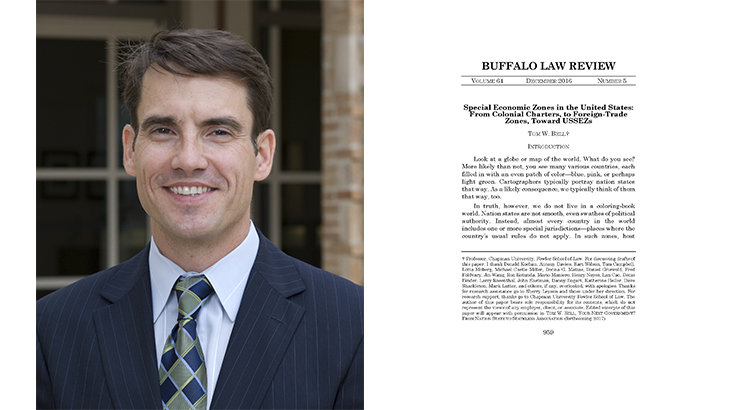
Chapman Law Professor Tom W. Bell Publishes Article on Special Economic Zones in U.S.
March 10, 2017
Chapman University Dale E. Fowler School of Law Professor Tom W. Bell’s article “Special Economic Zones in the United States: From Colonial Charters, to Foreign-Trade Zones, Toward USSEZs” was recently published in Volume 64 of the Buffalo Law Review.
From the abstract:
Special economic zones (SEZs) have a long and complicated relationship with the United States. The lineage of the country runs back to proto-SEZs, created when Old World governments sold entrepreneurs charters to build for-profit colonies in the New World, such as Jamestown and New Amsterdam. In more recent times, though, the United States has lagged behind the rest of the globe in tapping the potential of SEZs, which have exploded in number, types, territory, and population. True, the US hosts a large and growing number of Foreign-Trade Zones (FTZs), but these do little more than exempt select companies from federal customs obligations. Elsewhere, SEZs have done much more to increase jurisdictional competition and improve citizens’ lives. Consider the SEZs that spread from Hong Kong throughout China, lifting tens of millions of people out of poverty in the process, or the huge private developments now taking root in Africa, the Middle East, and India. This paper proposes that the United States combine the best of foreign and domestic policies to create a new generation of SEZs. These United States Special Economic Zones (USSEZs) would arise on federally owned property, such as lands managed by the Bureau of Land Management, and generate sorely needed public funds by selling territorial exemptions from select state and federal taxes, laws, and regulations. Through USSEZs, special jurisdictions might bring economic growth, human welfare, and individual freedom back to America.
